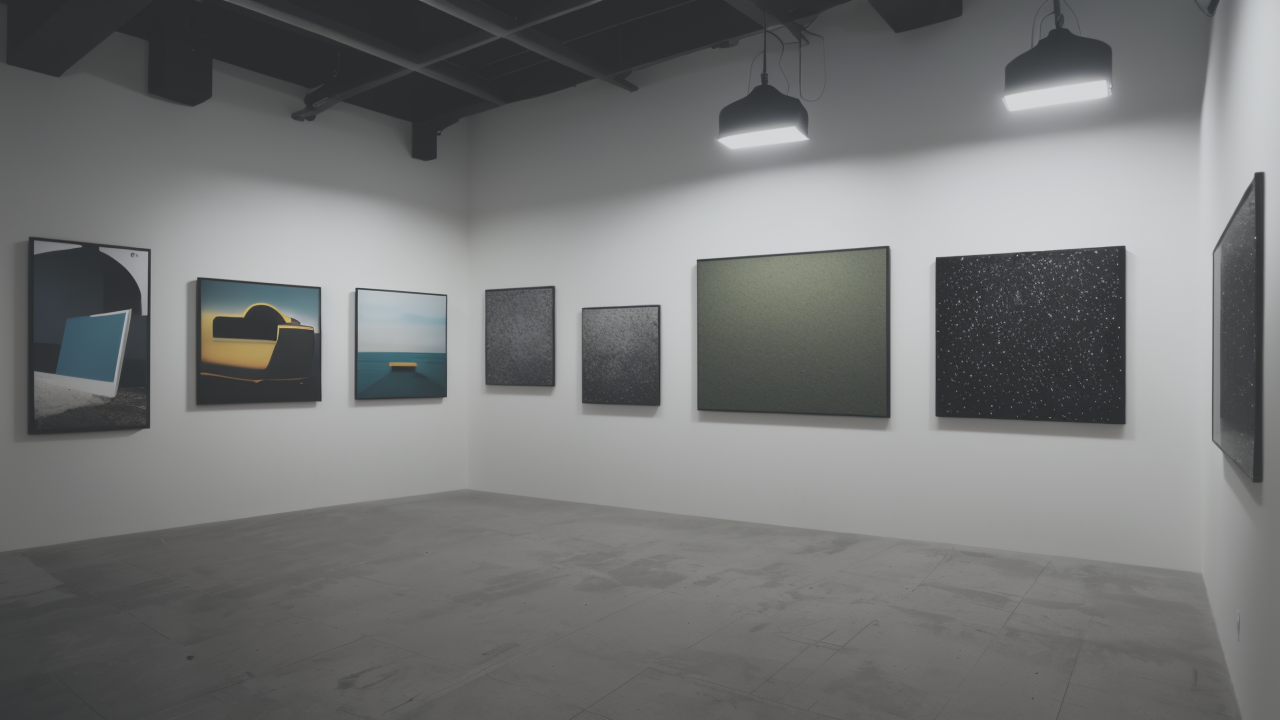
The Evolution of Cartoon Pop Art: From Lichtenstein to KAWS
The Fusion of Minimalism and Pop Art in Modern Culture
The History of Minimalism in the United States
Minimalism emerged in the US during the 1960s. It was a response to the complex art of that time. Artists wanted

to create simple, pure forms. They used basic shapes and colors in their work. Key figures like Donald Judd and
Frank Stella led this movement. They focused on the essence of objects. All unnecessary elements were removed.
Minimalism spread to other fields like music and design. It had a big impact on architecture and product design.
The style was all about "less is more." It rejected fancy decorations. By the 1970s, minimalism was a major
force in American art. It changed how people thought about beauty and function in everyday life.
Pop Art's Influence on Contemporary Minimalism
Pop Art came about around the same time as minimalism. It drew inspiration from popular culture and mass media.
Artists like Andy Warhol and Roy Lichtenstein were key figures. They used bold colors and simple shapes in their
art. Pop Art celebrated everyday objects and images from popular culture. It made art more accessible to the
general public. Over time, Pop Art began to influence minimalism. Artists started to mix simple forms with pop
culture imagery. This fusion created a new and exciting style. It was both simple and eye-catching. The blend
appealed to a wide audience. It became popular in advertising and design. This mix of styles set the stage for
artists like Kaws to emerge.
Kaws' Role in Reviving Classic American Design
Kaws, whose real name is Brian Donnelly, has played a big role in bringing back classic American design. He
combines elements of Pop Art and minimalism in his work. Kaws creates simple, cartoon-like characters. These
often have X-ed out eyes and round limbs. He uses this style in sculptures, paintings, and products. Kaws has
worked with many big brands. This has brought his art to more people. His work celebrates American pop culture.
At the same time, it keeps a minimalist approach. This unique mix has made Kaws a leading figure in design. He
connects high art with popular culture. Kaws' work has inspired a new generation of artists and designers.
The Business of Minimalism: How Kaws Capitalizes on Simplicity
The Strategic Branding of Kaws' Minimalistic Products
Kaws has built a strong brand around his minimalist style. He makes limited edition items that are in high

demand. His simple designs are easy to spot. Kaws uses social media to create buzz about new releases. He works
with well-known brands to reach different markets. His products range from toys to furniture. All of them feature
his distinct style. The limited availability of his items increases their value. Kaws' branding strategy mixes
exclusivity with accessibility. This appeals to both serious collectors and casual fans. His approach has made
his brand both profitable and culturally important.
Kaws' Success in Minimalist Design Innovation
Kaws' success comes from his ability to innovate within minimalist design. He takes familiar icons and makes them
simpler. This creates new, striking images. His work often uses bold colors and clean lines. Kaws applies his
style to many different forms. These range from small figures to large sculptures. He has reimagined classic
characters like Mickey Mouse. By doing this, he creates a link between pop culture and fine art. Kaws'
innovations have expanded minimalist design. He shows that simple forms can be both meaningful and popular. His
work inspires other artists to push boundaries in design.
Analyzing Consumer Attraction to Minimalist Aesthetics
People are drawn to minimalist aesthetics for several reasons. Simple designs offer calm in a busy world. Clean
styles are easy to mix with other designs. Minimalist products often look more expensive. They fit with trends of
decluttering and mindful buying. Kaws' work taps into these preferences. His designs are simple but emotionally
engaging. They let people enjoy minimalism without losing personality. Consumers like how his art is both simple
and playful. It offers a way to own a piece of contemporary art. Kaws' success shows that minimalism can be both
popular and artistically valuable.
The Future of Minimalism in Art and Commerce
Upcoming Trends in Minimalist Design
Minimalist design keeps evolving. New trends are emerging in this field. Digital minimalism is growing in app and

website design. It focuses on reducing clutter and improving user experience. Sustainable minimalism combines
simple design with eco-friendly materials. This responds to growing environmental concerns. Textured minimalism
adds depth to simple designs through subtle patterns. Colorful minimalism brings in bold hues while keeping clean
lines. These trends show minimalism adapting to new needs. They suggest a future where simplicity remains key,
but with added dimensions.
The Evolving Consumer Preferences and Their Impact on Artistic Expression
Consumer tastes are changing. People want more meaningful and sustainable products. This shift affects how
artists express themselves in minimalist design. Artists and designers now focus more on quality over quantity.
They create pieces that last longer and have deeper meaning. There's growing interest in handmade and local
items. This trend encourages more personal expressions of minimalism. Consumers also seek products that tell a
story or support a cause. As a result, minimalist art is becoming more narrative and socially aware. These
changing preferences push artists to be creative within minimalist constraints.
How Kaws Is Shaping the Minimalist Movement in the United States
Kaws continues to shape minimalism in the US through his diverse projects. He connects high art with consumer
products. His large sculptures bring minimalist art into public spaces. Kaws works with fashion brands to
introduce minimalism to new audiences. He uses social media to engage fans and show his work. This keeps
minimalism relevant in the digital age. Kaws' success inspires other artists to explore minimalist pop art. He
shows that simple designs can be both popular and meaningful. As Kaws grows, he keeps influencing American
minimalism. His work proves that minimalism can evolve while staying true to its core principles.


